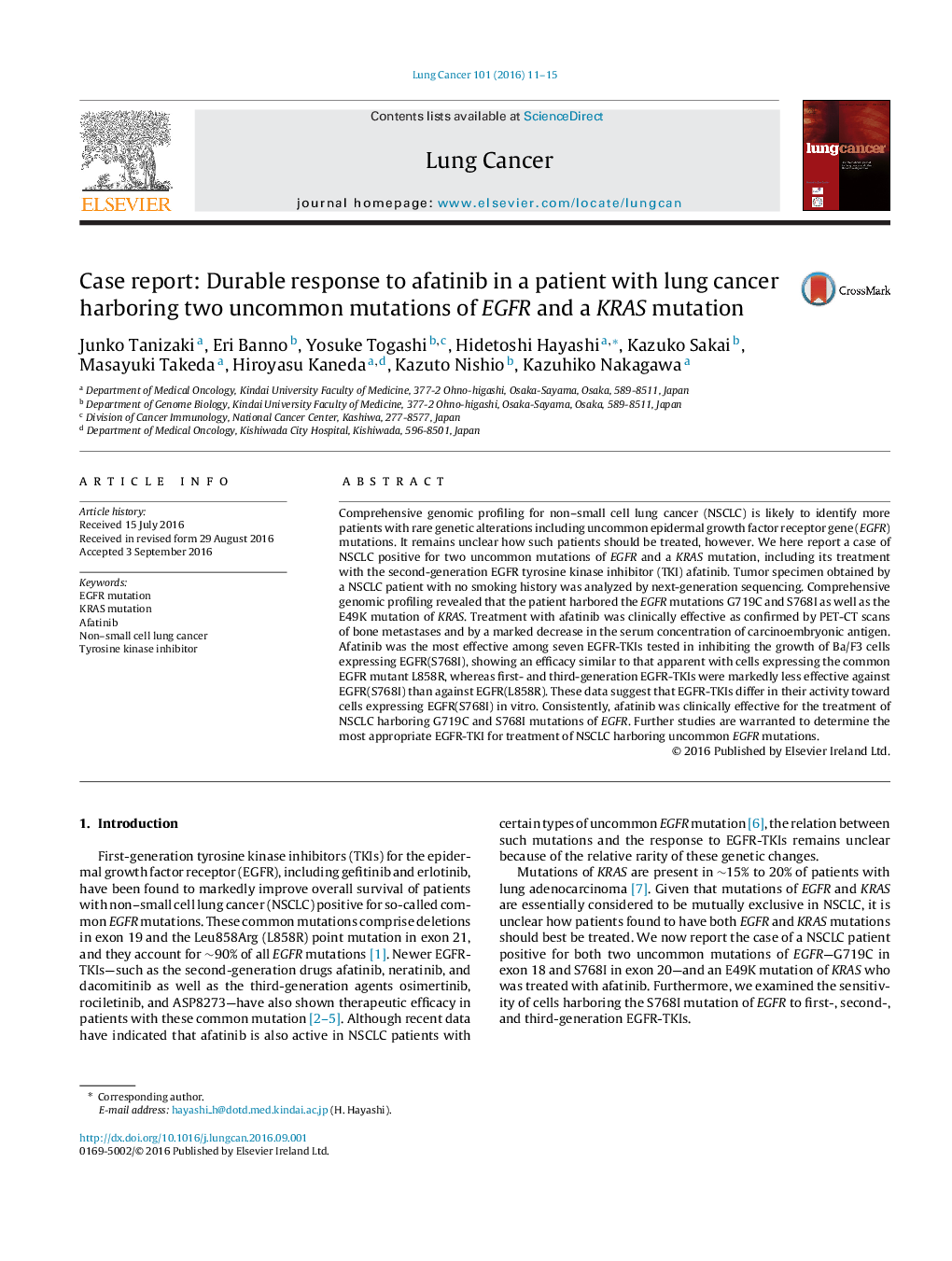| Article ID | Journal | Published Year | Pages | File Type |
|---|---|---|---|---|
| 8454537 | Lung Cancer | 2016 | 5 Pages |
Abstract
Comprehensive genomic profiling for non-small cell lung cancer (NSCLC) is likely to identify more patients with rare genetic alterations including uncommon epidermal growth factor receptor gene (EGFR) mutations. It remains unclear how such patients should be treated, however. We here report a case of NSCLC positive for two uncommon mutations of EGFR and a KRAS mutation, including its treatment with the second-generation EGFR tyrosine kinase inhibitor (TKI) afatinib. Tumor specimen obtained by a NSCLC patient with no smoking history was analyzed by next-generation sequencing. Comprehensive genomic profiling revealed that the patient harbored the EGFR mutations G719C and S768I as well as the E49K mutation of KRAS. Treatment with afatinib was clinically effective as confirmed by PET-CT scans of bone metastases and by a marked decrease in the serum concentration of carcinoembryonic antigen. Afatinib was the most effective among seven EGFR-TKIs tested in inhibiting the growth of Ba/F3 cells expressing EGFR(S768I), showing an efficacy similar to that apparent with cells expressing the common EGFR mutant L858R, whereas first- and third-generation EGFR-TKIs were markedly less effective against EGFR(S768I) than against EGFR(L858R). These data suggest that EGFR-TKIs differ in their activity toward cells expressing EGFR(S768I) in vitro. Consistently, afatinib was clinically effective for the treatment of NSCLC harboring G719C and S768I mutations of EGFR. Further studies are warranted to determine the most appropriate EGFR-TKI for treatment of NSCLC harboring uncommon EGFR mutations.
Related Topics
Life Sciences
Biochemistry, Genetics and Molecular Biology
Cancer Research
Authors
Junko Tanizaki, Eri Banno, Yosuke Togashi, Hidetoshi Hayashi, Kazuko Sakai, Masayuki Takeda, Hiroyasu Kaneda, Kazuto Nishio, Kazuhiko Nakagawa,
